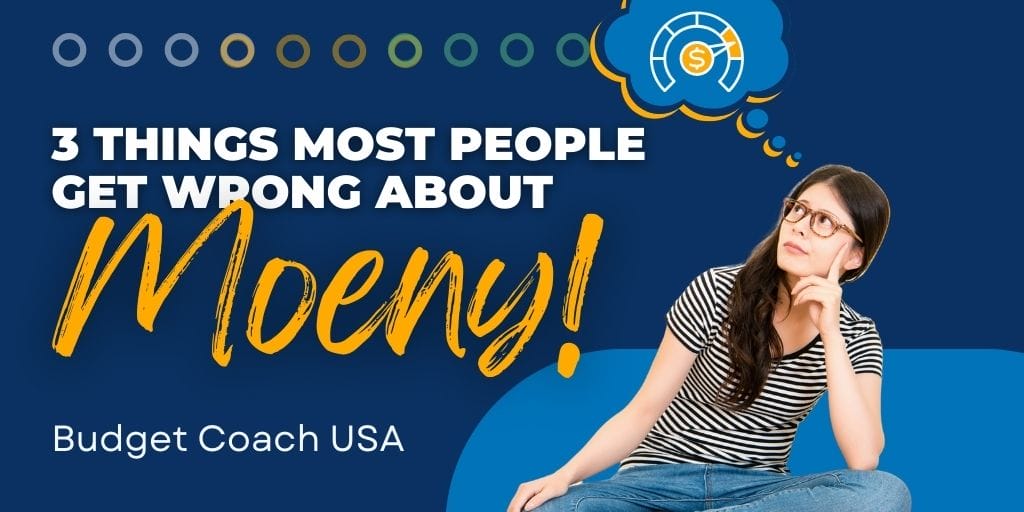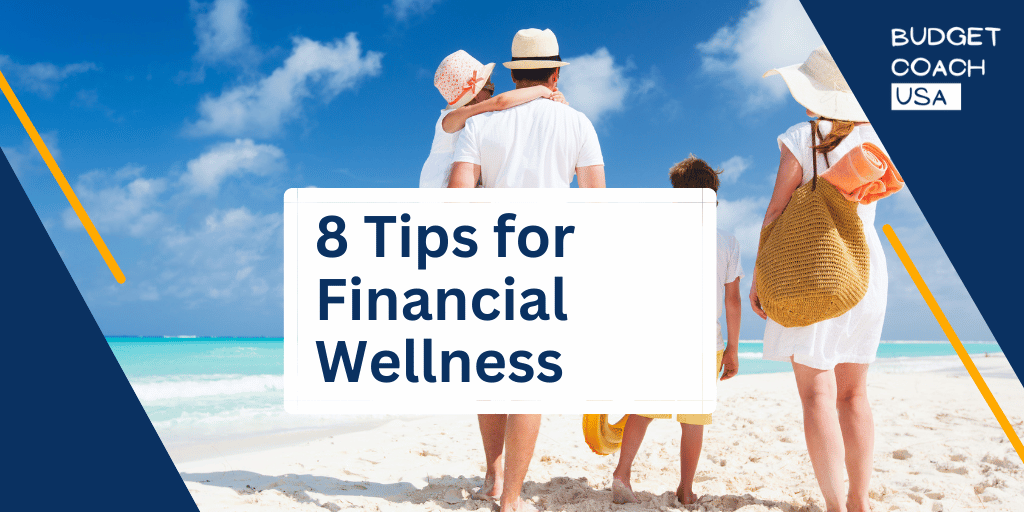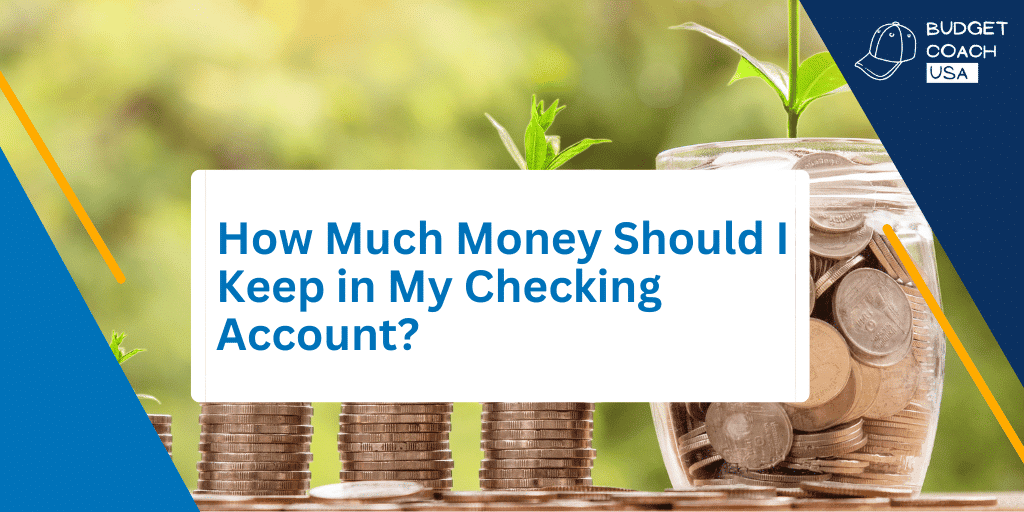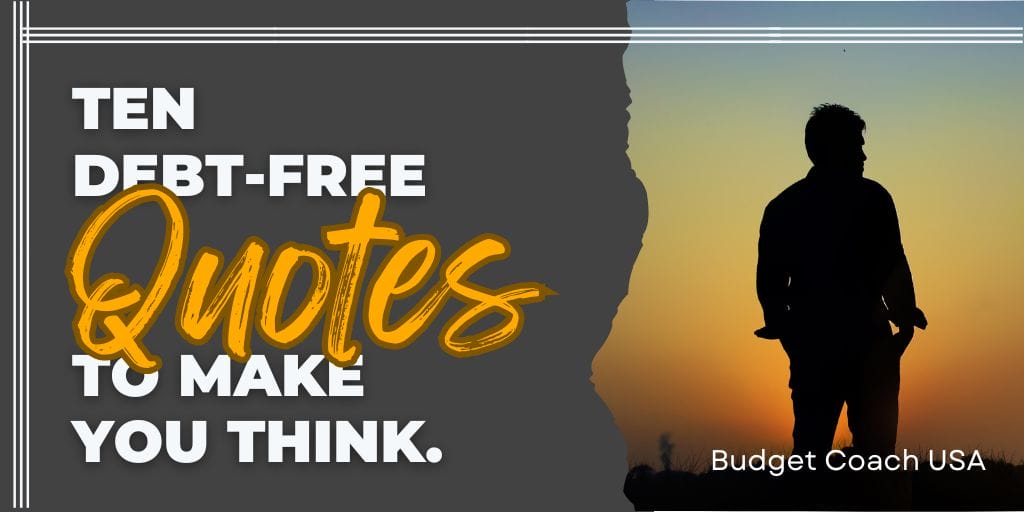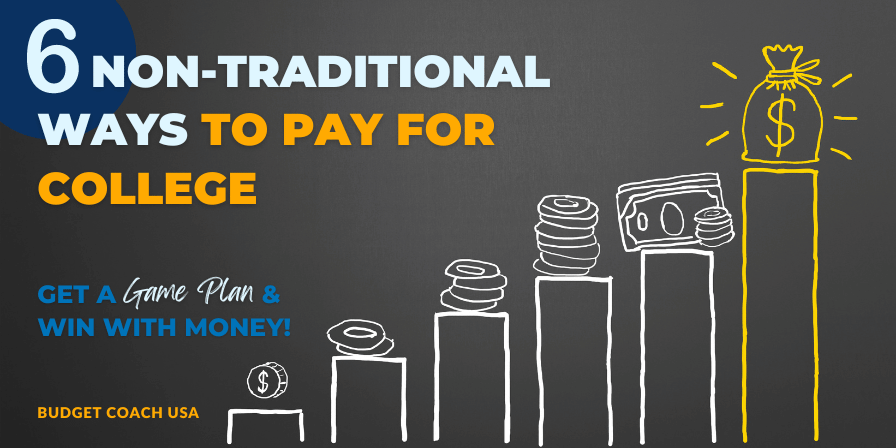Three Things Most People Get Wrong About Money.
I’ve had more than one friend and even family members question my commitment to debt-free living; not in an argumentative way though. It is more of a squishy disagreement that seeks to justify using debt while offering no real upside. Over the years I’ve watched almost every money strategy filter its way through people I know; from risky partnerships to the Dogecoin craze. However, the most common things I see people get wrong about money are also the most basic things.
In this article, we’ll highlight some areas that differ from popular money assumptions most people have; borrowing, budgeting, and why credit scores are a debt trap.
Top 3 Things Most People Get Wrong About Money.
1. Borrowing money is useful.
Debt is not a useful wealth-building tool for you.
It is however a useful wealth-building tool for the bank…at your expense. And they depend on this arrangement to make money. The math is clear. Borrow money from a bank and when you are done paying it back, you’ll have less money than when you started. The more money you borrow, the less money you have in the end.
Debt is a financial product that enriches the (lender) bank, not you.
Your bank is not like your local library. They won’t let you borrow for free and bring it back whenever you feel like it. Your bank exists to make money and their primary product is debt. Their goal is to sell you as much debt as they can, for as long as they can. This is useful to them but not very useful for you. It all comes at your expense.
If you want to spend your entire life playing catch-up, borrow money.
If you want to spend your life building wealth, learn how to live on a budget, save for the future, and stay out of debt. Borrowing is not a useful tool no matter how well banks and credit card companies advertise their product. It simply is not. You cannot borrow your way to wealth.
2. Budgeting is nice but not necessary.
If you think you are too sophisticated for a budget, think again. A budget is the cornerstone of personal financial wellness and the basis from which every good financial milestone is accomplished. How do you plan for major purchases? With a budget. How do you get debt-free? It begins with the use of a budget. A budget tells every dollar where to go so that at the end of the month you’ve used all of them to maximum efficiency. When you tell every dollar where to go you are assured that the dollars you need to go toward retirement instead of a new 80-inch TV. A budget is the cornerstone of personal financial wellness and the basis from which every good financial milestone is accomplished.
Learn more about how to budge here.
3. Protecting your credit score matters.
FICO is so well known that at some point in time having a good FICO credit score became ubiquitous with being “good with money”. But did you know you can’t have a FICO score if you are debt-free? That’s right. If you are debt-free FICO will list your credit score as undetermined. This brings up an interesting question: Who is “good with money”? Someone in debt or someone debt-free? Turns out, if you are debt-free, FICO essentially tells lenders to consider you a bigger risk than a person who goes further into debt to buy things they don’t have the money for. Weird huh?
Banks have done such a good job of scaring people into protecting their credit score most people feel the credit score is a necessary part of life. But is it? What happens if you quit focusing on credit scores and start focusing on the number that matters most; the balance in your bank account? Here are the top lies about credit scores:
4 lies about credit scores.
1. A credit card and credit score is needed to rent a car.
FALSE: You can rent a car with a debit card.
2. A credit score is needed to get a mortgage to buy a house.
FALSE: Manual underwriting is the process where a mortgage lender (a real person) looks at your real bank accounts, employment history, and rental history and makes a real lending decision based on real facts, not a credit score generated by an AI algorithm. Manual underwriting does not need a credit score because a real person talks (mortgage lender) talks to a real person (you) arriving at a logical decision based on real facts.
3. Having “no credit score” will make my insurance go up.
Not for all insurers. While it is true that some insurers base your insurance rates on your credit score, others are looking for customers who do not carry any debt and own their home. In reality, some insurance underwriters such as Westfield, Auto Owners, and Erie Insurance base their rates on factors other than the presence of a credit score.
4. A good credit score means you are good with money.
DOES IT? A good credit score means you are good at making payments. Does that equal good with money? Maybe. But we think the ultimate indicator of being good with money is if you don’t borrow money at all. People who make their money behave by living within a monthly zero-based budget and don’t take consumer loans for anything but a house are far better with money in my mind than the opposite.
3 facts about credit scores.
1. Lenders want you to think you must have a credit score because they win when you are in debt.
Most people get so wrapped up in “building credit” that they forget the bottom line number in their bank account is the most important number they should be aiming for. Banks are playing a game where they make the rules and want you to think you must play too.
2. The financial system that decides your credit score is the same system that benefits when you are in debt.
Don’t play the debt game.
3. Being in debt is the only way you can have a credit score.
If being in debt is the only way to have a credit score why is everyone so eager to have a good credit score? Aim for debt-free and kick FICO out of your life.
2 facts about playing games with banks.
1. The bank wins the game nearly all of the time.
Banks don’t stay in business because their credit holders win all the rewards points and leave them holding the bag. They stay in business because they get the best of you! Banks spend every waking hour of the workday thinking about ways to get people to borrow more money. They create impressive marketing plans, prompt bank staff to suggest debt, and send emails to your inbox to keep you in debt…to them. And by the way; they make up the rules of the game. If you decide to play the game, they will eventually win. I once, a long time ago, thought I would use a Visa card for the cash-back rewards. I used it for nearly a full year to make purchases for a nonprofit I was working for. For my efforts, I earned $60 cash back and when I made the mistake of being 1 day late on one month’s payment due to my forgetfulness they charged me a $35 late fee. Yep, a full year of playing the game netted me $25 bucks. Is that a win? No way. I’d rather spend my energies somewhere else.
2. You are not the exception.
You just aren’t. Why waste all that energy on playing a game where the other team stacks the rules and if you are wrong once, they win? Spend your energies somewhere else like making full use of your budget, saving your money for retirement over the long term, and winning the race on a level playing field. You’ll be better off, I promise.

The 3 Drivers of Financial Success
1. Pay attention to your money
The first habit you need to begin building wealth is the pay attention to your money. Every day. On purpose. This means knowing how much is coming in and how much is going out. And then, using a budget and some personal discipline, directing every dollar toward a goal that helps you build wealth. This takes some time and practice however the single most indispensable tool for building wealth is paying attention to your money by using a zero-based budget.
2. Pay off all of your debt using a debt snowball
You cannot borrow your way to wealth. If you are in debt today, begin paying off that debt now using a debt snowball.

3. Invest, Invest, Invest
Once you are debt-free, invest at least 15% of your household income into your retirement savings plan. First, take advantage of your employer’s match plan. Their match is free money to you. It is like an instant raise! Second, if you still need to invest more to reach 15% open a ROTH IRA for yourself and your spouse if applicable. Lastly, if you still have money to invest, open a Traditional IRA.
Let’s do the math. If you started investing $100 per month into a good mutual fund at age 21 you would have $1,000,000 (million) at age 62 based on historical returns from the last 80 years. That is just $100 per month. It is the cost of a couple of pizzas and a movie. That is less than your coffee spending for a lot of people. Building wealth comes down to doing the right things, consistently and over time. If you want to build wealth, invest!
Conclusion: Top 3 Things Most People Get Wrong About Money.
Borrowing money is not useful to anyone but the bank. They win and you lose nearly all of the time. So why play a game where they make the rules? People who use a zero-based budget are in a much better position to stay out of debt and build wealth over time. Budgets are the most useful too for building wealth and are an indispensable part of personal financial wellness. The best number to aim for is the bottom line number in your checking account, not your credit score. When you chase a credit score the banks are winning a game you didn’t even know you were playing.
If you want to get money right stay away from the things most people get wrong about money. Use a monthly zero-based budget, pay off your debt using a debt snowball, and invest for the long term. When you retire, you’ll be glad you did!
Bonus: 7 Steps to Financial Wellness
- Save a starter emergency fund of $1,000 as fast as you can.
- Pay off your debt. Start by listing all of your debts except for your mortgage. Put them in order by balance from smallest to largest—regardless of interest rate. Pay minimum payments on everything but the little one. Focus on that one until it is gone. Then take that payment and put it toward the second-smallest debt, making minimum payments on the rest. That’s what’s called the debt snowball method, and you’ll use it to knock out your debts one by one until you are debt-free except for the house.
- Save a full emergency fund of 3 to 6 months of household expenses
- INVEST 15% of your gross income toward retirement.
- CONTRIBUTE to children’s college education fund.
- PAY off the house early.
- Build wealth and be generous.
Note: Steps 4,5 & 6 are worked on at the same time.

